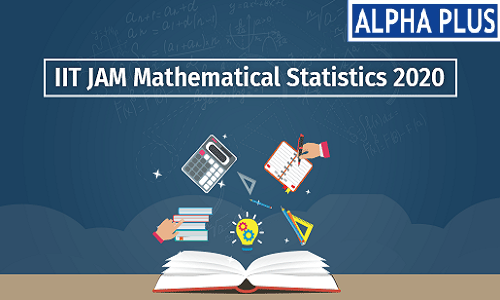JAM (Joint Admission Test) will be held in February every year.
The exam conducting authority (IIT) is chosen on a rotational basis, this year IIT Kanpur or Madras might conduct the exam.
If you are willing to pursue career in Pure Sciences and Research, then IIT JAM is the perfect M.Sc. Entrance Test for you. It offers 1000+ seats in pioneer IITs and IISC for Masters in Science and Ph.D. Courses.
The applicants should at least score 55% aggregate marks for General/OBC category candidates and at least 50% aggregate marks for SC, ST and PD category candidates. IIT-JAM Statistics Coaching.

IIT-JAM Paper Pattern
S.No. Sections Total No. of Questions Total Marks Time Duration
1 Part A 30 MCQ 1 or 2 marks each 3 Hours
2 Part B 10 MSQ 2 marks each 3 Hours
3 Part C 20 NAT 1 or 2 marks each 3 Hours
IIT-JAM Eligibility
Candidates can find below JAM eligibility criteria which are common for each programmes across institutes for appearing in the postgraduate science admission test.
The candidates should have secured at least 55 per cent marks in aggregate of subjects including languages and subsidiaries of all the years combined. Those however belonging to SC/ST and PwD categories need to secure at least 50 per cent marks. IIT-JAM Statistics Coaching.
IIT JAM Mathematics Syllabus
Sequences and Series of Real Numbers: Sequence of real numbers, convergence of sequences, bounded and monotone sequences, convergence criteria for sequences of real numbers, Cauchy sequences, subsequences, Bolzano-Weierstrass theorem. Series of real numbers, absolute convergence, tests of convergence for series of positive terms – comparison test, ratio test, root test; Leibniz test for convergence of alternating series.
Functions of One Real Variable: Limit, continuity, partial derivatives, differentiability, maxima and minima.
Functions of Two or Three Real Variables: Limit, continuity, partial derivatives, differentiability, maxima and minima.
Integral Calculus: Integration as the inverse process of differentiation, definite integrals and their properties, fundamental theorem of calculus. Double and triple integrals, change of order of integration, calculating surface areas and volumes using double integrals, calculating volumes using triple integrals.
Differential Equations: Ordinary differential equations of the first order of the form y’=f(x,y), Bernoulli’s equation, exact differential equations, integrating factor, orthogonal trajectories, homogeneous differential equations, variable separable equations, linear differential equations of second order with constant coefficients, method of variation of parameters, Cauchy-Euler equation.
Vector Calculus: Scalar and vector fields, gradient, divergence, curl, line integrals, surface integrals.
IIT JAM Mathematical Statistics Syllabus
The Mathematical Statistics (MS) test paper comprises of Mathematics (40% weightage) and Statistics (60% weightage).
MATHEMATICS:
Sequences and Series: Convergence of sequences of real numbers, Comparison, root and ratio tests for convergence of series of real numbers.
Differential Calculus: Limits, continuity and differentiability of functions of one and two variables. Rolle’s theorem, mean value theorems, Taylor’s theorem, indeterminate forms, maxima and minima of functions of one and two variables.
Integral Calculus: Fundamental theorems of integral calculus. Double and triple integrals, applications of definite integrals, arc lengths, areas and volumes.
Matrices: Rank, inverse of a matrix. Systems of linear equations. Linear transformations, eigenvalues and eigenvectors. Cayley-Hamilton theorem, symmetric, skew-symmetric and orthogonal matrices.
STATISTICS:
Probability: Axiomatic definition of probability and properties, conditional probability, multiplication rule. Theorem of total probability. Bayes’ theorem and independence of events.
Random Variables: Probability mass function, probability density function, and cumulative distribution functions, distribution of a function of a random variable. Mathematical expectation, moments and moment generating function. Chebyshev’s inequality.
Standard Distributions: Binomial, negative binomial, geometric, Poisson, hypergeometric, uniform,exponential, gamma, beta and normal distributions. Poisson and normal approximations of a binomial distribution.
Joint Distributions: Joint, marginal and conditional distributions. Distribution of functions of random variables. Joint moment generating function. Product moments, correlation, simple linear regression. IIT-JAM Statistics Coaching.
